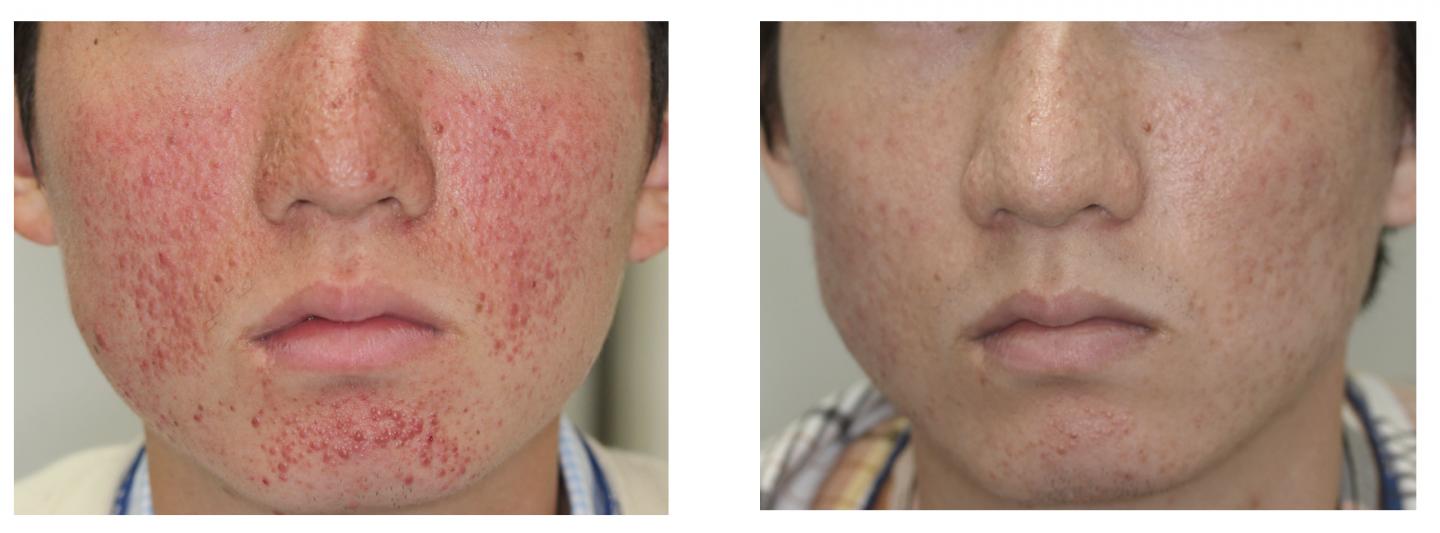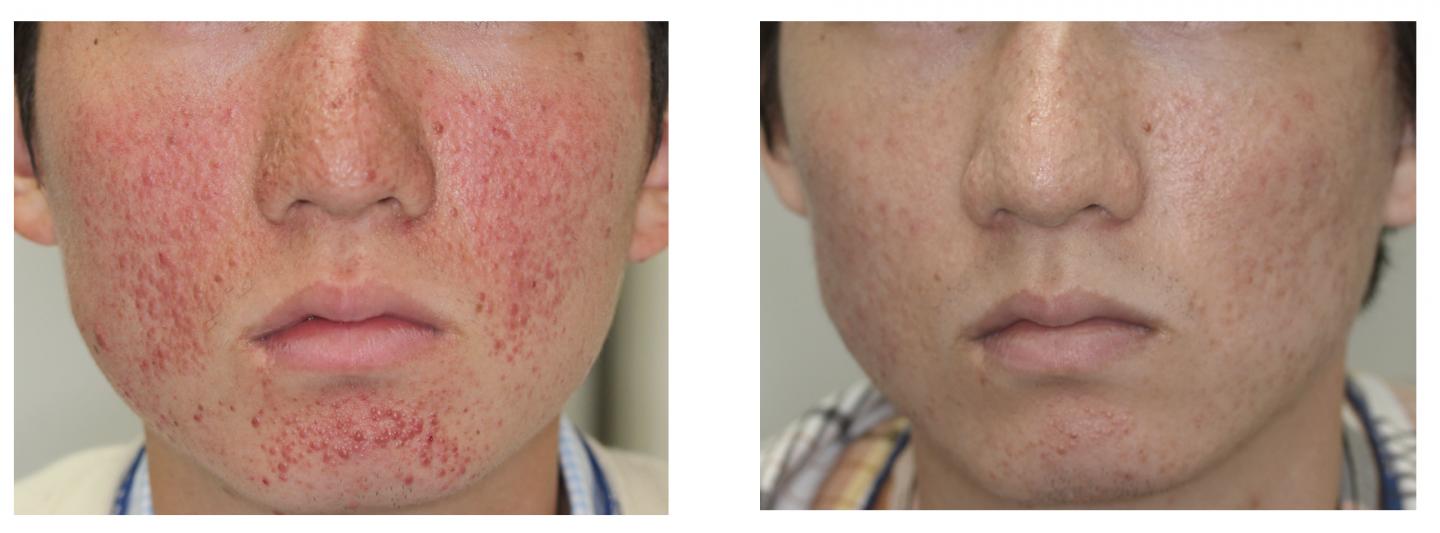
Credit: Osaka University
Scientists at Osaka University developed a new drug treating skin lesions in tuberous sclerosis complex (TSC), a rare intractable disease, a world first. Following the physician-led clinical studies I and II by Osaka University, Phase III clinical trials by a pharmaceutical company, the drug was approved within 6 months of the drug application by the SAKIGAKE Designation System, an early approval system led by the Japanese government, on March 23, 2018 and was then commercialized.
This drug is the first drug designated by the SAKIGAKE system. The details of physician-led clinical studies I and II were published in JAMA Dermatology in January 2017.
TSC is an inherited autosomal dominant disease caused by mutations in TSC1 (hamartin) and TSC2 (tuberin) genes. Mutations in the TSC1 and TSC2 tumor suppressor genes cause hyperactivation of the mTORC1 (mammalian target of rapamycin complex 1), developing neoplastic lesions called hamartoma in numerous organs, such as the brain, skin, kidneys, and lungs.
The symptoms of TSC include epilepsy, learning disabilities, developmental delays, and autism spectrum disorder in addition to hamartoma. Of the various symptoms, skin problems, such as facial angiofibromas, develop in more than 90 percent of patients with TSC. Hemorrhage, secondary bacterial infection, pain, and functional disorder associated with lesions inflict suffering on patients, severely compromising their quality of life for cosmetic reasons. However, currently, the established therapeutics are limited to surgical therapies, which are difficult to perform on small children and patients with intellectual disabilities without general anesthesia.
The systemic administration of sirolimus (Rapamycin) reduces the tumor volume and lessen the redness of tumors in TSC; however, the systemic treatment may cause adverse effects. Thus, the research group led by Mari Wataya-Kaneda proceeded with research and development of a topical gel of mTORC1 inhibitors as a safer therapeutic agent, considering topical sirolimus formulations in order to enhance the absorption of effective ingredients with large molecular weight.
This topical sirolimus gel is the only drug which can be locally applied to skin lesions in TSC. The approval of this painless, safe, and easy-to-use drug has enabled safe and effective treatment for skin lesions in TSC. Also, the SAKIGAKE system and industry-government-university collaboration worked extremely well in the approval of the drug, which will be helpful in developing drugs for treating other intractable diseases in the future.
###
Osaka University was founded in 1931 as one of the seven imperial universities of Japan and now has expanded to one of Japan's leading comprehensive universities. The University has now embarked on open research revolution from a position as Japan's most innovative university and among the most innovative institutions in the world according to Reuters 2015 Top 100 Innovative Universities and the Nature Index Innovation 2017. The university's ability to innovate from the stage of fundamental research through the creation of useful technology with economic impact stems from its broad disciplinary spectrum.
Website: http://resou.osaka-u.ac.jp/en/top
Media Contact
Saori Obayashi
[email protected]
81-661-055-886
@osaka_univ_e
http://www.osaka-u.ac.jp/en
Original Source
http://resou.osaka-u.ac.jp/en/research/2018/20180326_1 http://dx.doi.org/10.1001/jamadermatol.2016.3545





